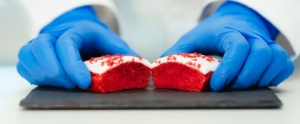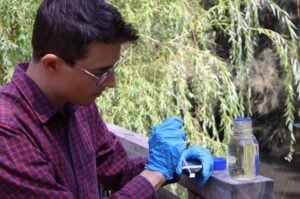Friday, 16 January 2026
IIT Guwahati develops pharmaceutical and food products from tea factory waste
The tea industry’s waste-based value-added products will create new job opportunities, open wind of new start-ups and entrepreneurship opportunities among rural youths Indian Institute of Technology Guwahati (IIT Guwahati) researchers have…

The tea industry’s waste-based value-added products will create new job opportunities, open wind of new start-ups and entrepreneurship opportunities among rural youths
Indian Institute of Technology Guwahati (IIT Guwahati) researchers have developed innovative technologies for sustainable and efficient utilisation of tea waste from the tea industry. In line with the scope of the waste-to-wealth mission (W2W) of the Principal Scientific Adviser (PSA), Government of India, this research leverages a key regional resource to promote a more sustainable and diversified economy in the North Eastern states of India. The research will also fulfil the purpose of the ‘Act East Policy’ of Govt of India, ‘Advantages Assam’ and ‘Biotechnology’ policy of Govt of Assam.
As per a recent study, tea is one of the most widely consumed beverages worldwide with world tea consumption reaching 6.3 million tonnes and is expected to rise to 7.4 million tonnes by 2025. This huge increase in tea consumption leads to an increase in industrial tea waste generation which leads to the non-utilisation of valuable agricultural resources and deterioration of the environment. Because of its high lignin and low inorganic content, efficient utilisation of tea industry wastes demands scientifically advanced techniques. Addressing these waste utilisation and management issues becomes paramount as it aligns with sustainable practices and innovative solutions, ensuring both industrial growth and ecological preservation.
Addressing these issues, the research team led by Prof. Mihir Kumar Purkait, Department of Chemical Engineering, IIT Guwahati, has carried out cutting age research on the diversified application of tea factory waste to various pharmaceutical and foods products as an output of Abdul Kalam Technology Innovation National Fellowships of Indian National Academy of Engineering (INAE). These carbonaceous pharmaceutical materials form the basis for a broad spectrum of application-based commodities.
The findings of these studies have also been published in various international journals including the International Journal of Biological Macromolecules, Chemosphere, Critical Reviews in Biotechnology etc. This research has been carried out by Somnath Chanda, Prangan Duarah, and Banhisikha Debnath as a part of their PhD thesis work in the Centre for The Environment of IIT Guwahati.
Elaborating on one such technology to harness the potential of tea waste, Prof. Mihir Kumar Purkait, Department of Chemical Engineering, IIT Guwahati, said, “The convenience and health benefits of catechin-based capsules open a promising avenue, offering users access to the advantages of catechins without the necessity of multiple cups of green tea. This caters to the increasing demand for antioxidant-rich supplements in our daily routines.”
Technology
Bringing PFAS testing to the point of need
Jan 16, 2026 | Australia
Study finds Magtein enhances memory, reaction time and heart health markers
Jan 15, 2026 | Company News
Walmart and Google turn AI discovery into effortless shopping experiences
Jan 15, 2026 | Company News
Food Testing
Bringing PFAS testing to the point of need
Jan 16, 2026 | Australia
IMCD opens a Food & Nutrition Laboratory in Cologne
Jan 08, 2026 | Company News
La Trobe University Develops Portable Biosensor to Detect PFAS in Water
Jan 08, 2026 | Australia
More Popular
Amar Pure Gold to invest Rs 250 Cr in Agro-Food Park in Himachal Pradesh
Jan 16, 2026 | Company News
Franke launches new A Line in Southeast Asia and opens regional flagship showroom in Singapore
Jan 16, 2026 | Beverages
EXBERRY plant-based colour supplier GNT earns top sustainability award
Jan 16, 2026 | Awards





